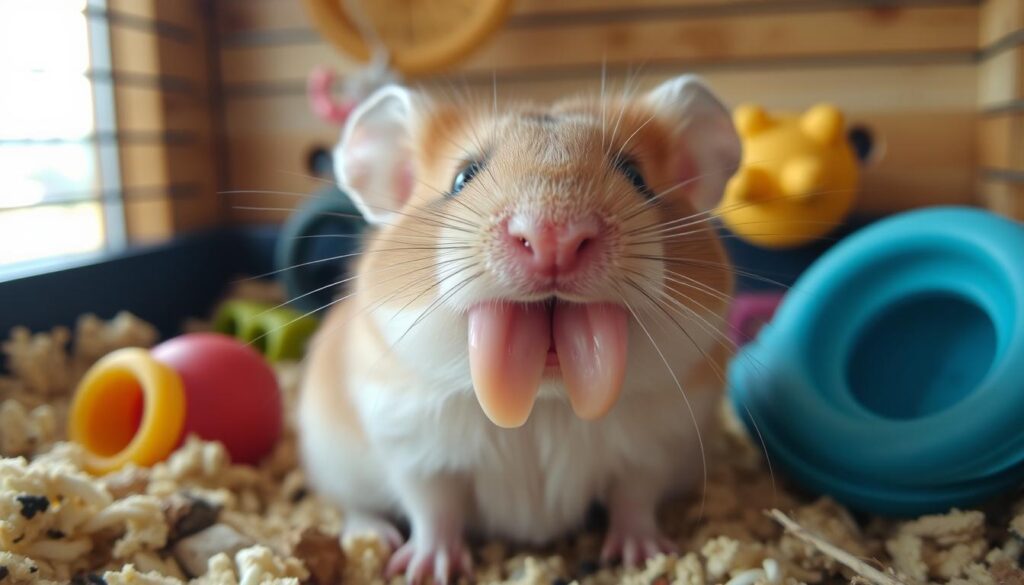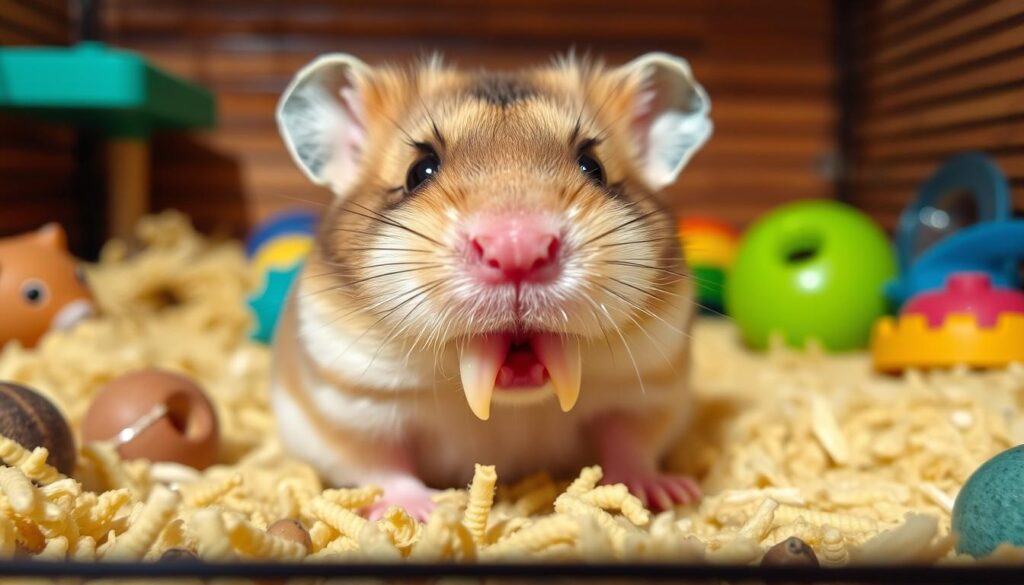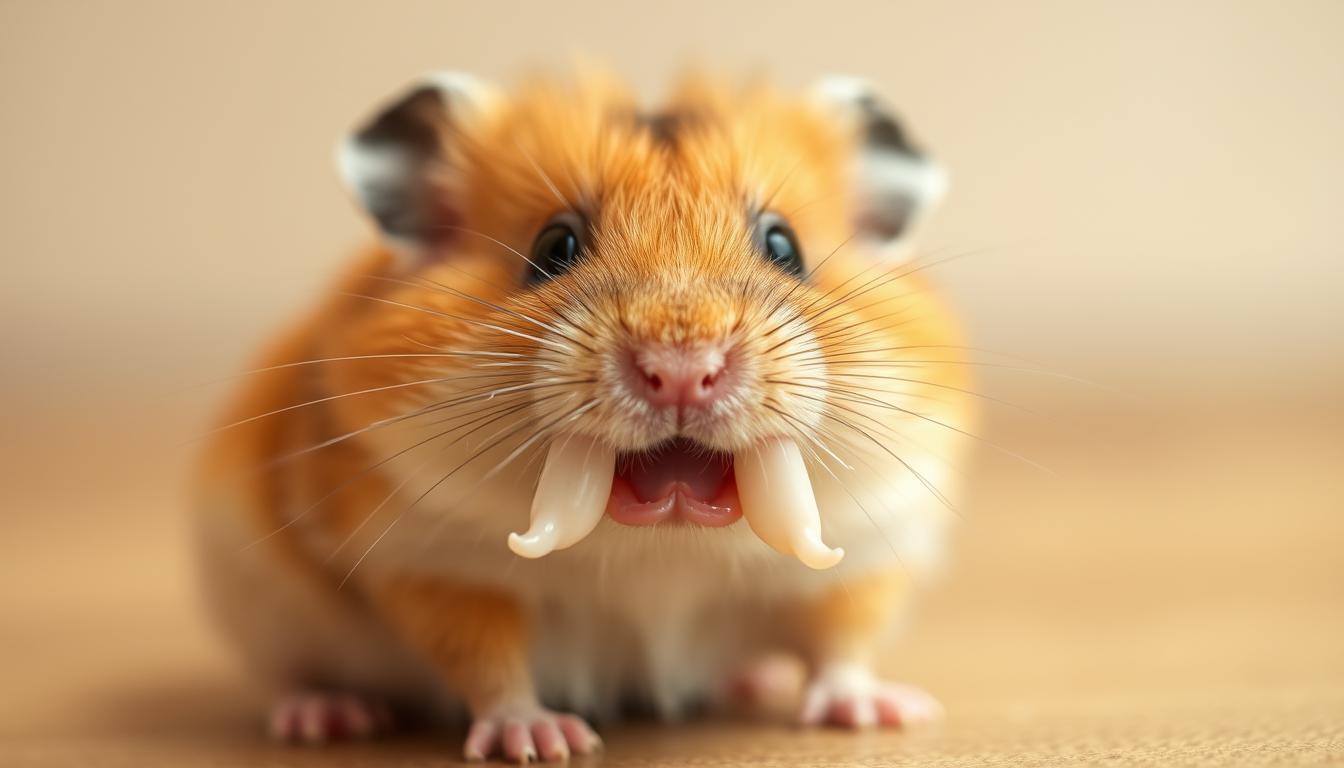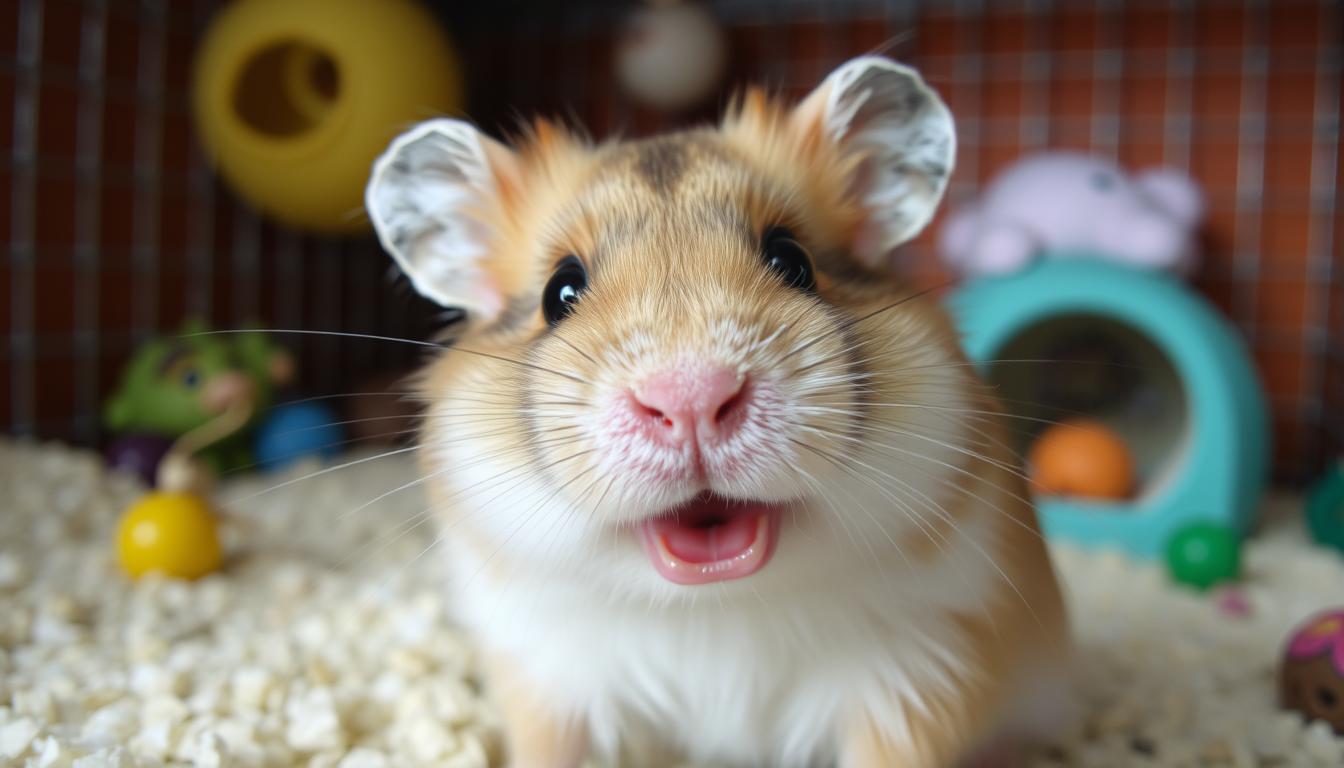Hamsters are cute and beloved pets. But, their long teeth can be a big health problem. If their teeth grow too long, it can make eating hard and even life-threatening. We’ll look at how to spot this issue and how to fix it to keep your hamster’s teeth healthy.
Ever wondered why your hamster’s teeth are so long? This question is where we start. We’ll learn about why their teeth grow long and how to stop it. This way, you can help keep your hamster’s teeth in good shape.
Key Takeaways
- Hamsters’ teeth keep growing, so dental care is key.
- Long teeth can cause eating problems, pain, and serious health issues.
- Right chew toys, diet, and dental checks are vital for healthy teeth.
- Spotting signs like long teeth and eating troubles early is crucial.
- With the right steps and vet care, your hamster can have healthy teeth.
Understanding Hamster Dental Anatomy
Hamsters are fascinating creatures with unique dental anatomy. Their teeth grow continuously, helping them chew and grind food. Keeping their teeth aligned is key for their health and to avoid dental problems.
The Importance of Proper Tooth Alignment
Hamsters’ teeth grow all their lives, allowing them to chew food. But, misaligned teeth can cause big problems. Proper alignment helps them digest food well and stay healthy.
Factors Contributing to Overgrown Teeth
Several things can cause hamsters’ teeth to grow too long. Diet, genetics, and environment all play a part. A bad diet or genetics can lead to tooth problems.
It’s important to watch your hamster’s teeth and fix any issues quickly. Knowing about tooth alignment and what causes problems helps keep your hamster healthy.
“Proper dental care is essential for a hamster’s overall health and longevity.”
Hamster Teeth Too Long
Overgrown or elongated teeth, often called “malocclusion,” are common in hamsters. This happens when teeth don’t align right, growing too long. It can cause discomfort or make it hard for the hamster to eat.
Hamsters’ teeth grow all their lives. But sometimes, they grow too fast or too slow. This can lead to hamster teeth too long or overgrown hamster teeth. Hamster malocclusion can be caused by diet, genetics, or environment.
Knowing why and how to spot hamster teeth too long is key. It helps us care for our pets better. By fixing this issue, we keep our hamsters healthy and happy.

“Healthy hamster teeth are essential for their overall well-being, and it’s our responsibility as pet owners to ensure they maintain proper dental hygiene.”
Causes of Overgrown Hamster Teeth
Many things can make hamster teeth grow too long:
- Not eating the right foods that help wear down teeth
- Genetics that make them more prone to dental problems
- Not having enough chew toys or things to chew on
- Getting hurt in the mouth
Knowing why hamster teeth too long happens helps us stop it. We can keep our pets’ teeth healthy and in line.
| Potential Causes | Impact on Hamster Teeth |
|---|---|
| Improper Diet | Lack of fibrous materials for natural wear |
| Genetic Factors | Predisposition to dental issues |
| Lack of Chewing Opportunities | Insufficient tooth wear and overgrowth |
| Dental Trauma or Injury | Disruption of normal tooth alignment and growth |
Signs of Overgrown Hamster Teeth
It’s important to spot overgrown teeth in hamsters early. As their owners, we need to watch for signs to keep their teeth and health in check.
Visible Tooth Protrusion
One clear sign is when hamster teeth stick out too far. You can see this when you handle them or when they groom. If their teeth are way out, it’s time to check their dental health.
Difficulty Eating and Drinking
Overgrown teeth can make eating and drinking hard for hamsters. They might have trouble chewing food or drinking from bottles. Watch how they eat and drink to see if they seem uncomfortable or hesitant.

Spotting hamster tooth problems early is key to their health. Pay attention to teeth sticking out and eating/drinking issues. This way, you can help your hamster get the dental care they need.
Preventive Measures for Healthy Hamster Teeth
To keep your hamster’s teeth healthy, it’s important to give them the right chew toys and a balanced diet. Regular vet visits are also key. They help spot dental problems early and treat them quickly if needed.
Providing Proper Chew Toys and Diet
Hamsters need to chew to keep their teeth in good shape. Giving them chew toys like wooden blocks and hay cubes is a good idea. Also, a diet full of hay, fresh veggies, and a bit of pellets helps their teeth stay healthy.
Regular Dental Checkups
It’s crucial to take your hamster for regular vet checkups. The vet can check their teeth and spot any issues. This way, you can catch problems early and keep your hamster happy and healthy.




